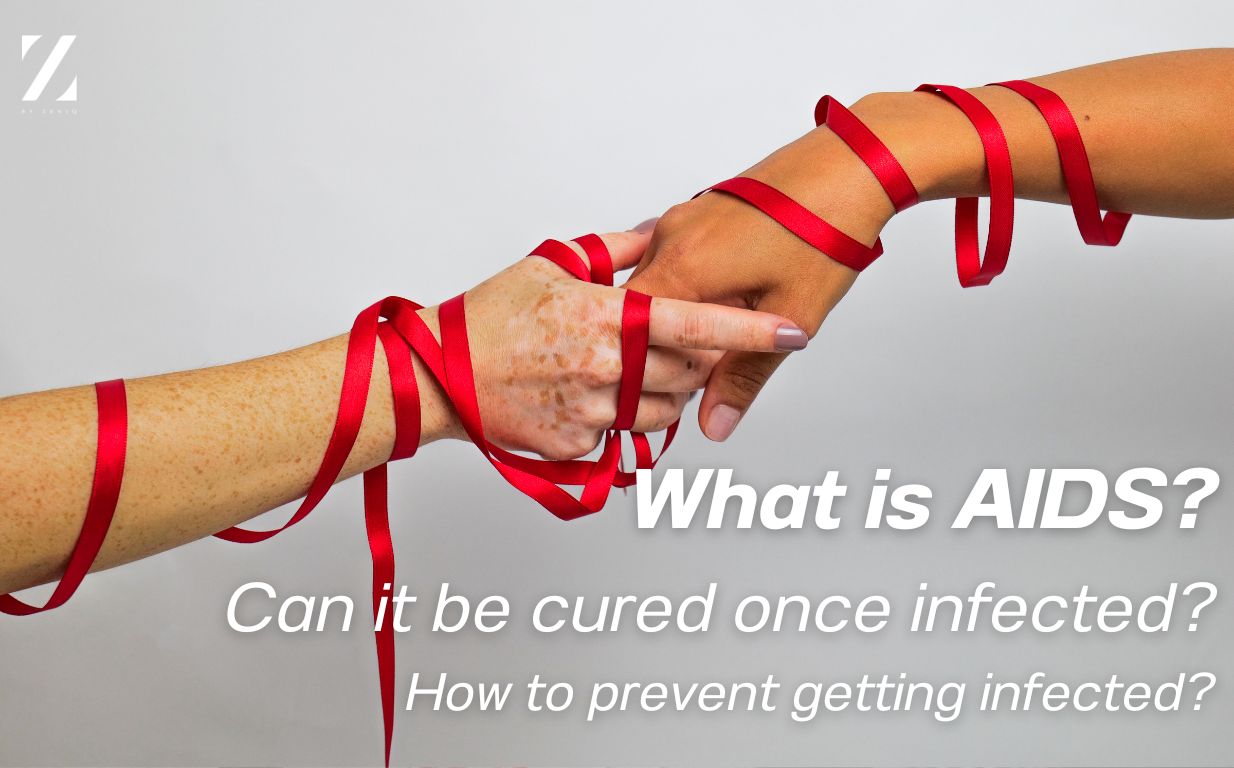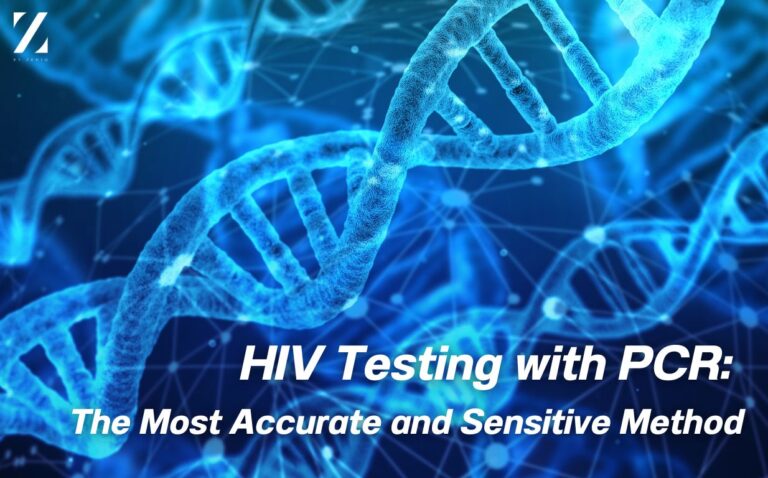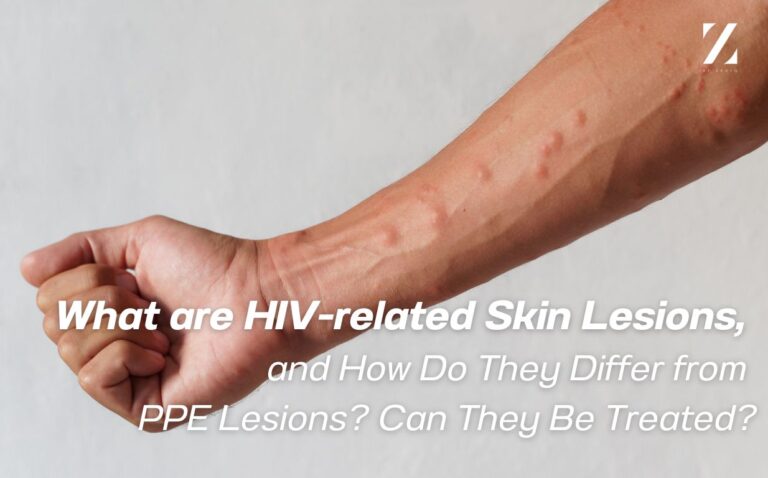In the past AIDS used to be seen as a terrible and incurable disease. AIDS has become a chronic disease that can be controlled. People living with HIV can live a long and quality life if they receive continuous treatment. However, prevention is still the best way to avoid this disease.
This article will take a look at how to prevent AIDS, as well as the possibilities of treatment and lifestyle of people living with HIV today.
What is AIDS?
AIDS is A condition caused by the HIV virus (HIV) that damages the body’s immune system. It makes the body weak and increases the risk of contracting opportunistic diseases such as tuberculosis or pneumonia more easily than normal people. Currently, there is a more effective treatment and control of HIV levels in infected people. This allows patients to live a long life and have a good quality of life.
AIDS What causes it?
Human Immunodeficiency Virus infection is the cause of AIDS. HIV is a virus that damages the body’s immune system, and when the body is exposed to HIV for a long time for about 10 years without proper and appropriate treatment. HIV will gradually destroy the immune system. Eventually, it developed into AIDS.
What are the symptoms of AIDS patients?
Each AIDS complication has different symptoms. However, it generally causes patients to feel fatigue, lose weight, have a chronic low fever, and have symptoms of damaged organs such as difficulty breathing, cough, sore throat, headache, nausea, vomiting, diarrhoea, rosy rash, and chronic ulcers.
What are the complications?
When the immune system is weakened, patients with AIDS often develop complications called “opportunistic infectious diseases”, which are diseases that normal people rarely have. Have enough immunity to protect against it. Common opportunistic infectious diseases in AIDS patients include:
- Tuberculosis is a bacterial infection that usually damages the lungs but can also affect other organs.
- Pneumonia is caused by a fungal infection called Pneumocystis jirovecii (PJP). This makes it difficult for the patient to breathe.
- Meningitis is caused by a fungal infection called Cryptococcus, which damages the meninges. It causes headaches, nausea, vomiting, and confusion.
- Cancer: AIDS patients are more likely to develop certain types of cancer than the general population, such as lymphoma. Cervical cancer, vascular wall cancer, rectal cancer, and leukaemia.
- Septicaemia is caused by germs entering the bloodstream. It causes severe inflammation of the body.
How many stages of HIV infection are there?
AIDS can develop from stages 1 and 2 of HIV infection, which are usually divided into 3 stages.
Early stages of Infection
The early stages of HIV infection are when the body begins to respond to the HIV virus about 2-4 weeks after exposure. HIV divides rapidly and destroys CD4 cells, which are important cells of the immune system. Although the body tries to create new CD4 cells to fight the infection, the increased amount is not enough to completely inhibit the activity of HIV. This is the reason why infected people at this stage can spread the infection to others.
However, some people with HIV in the early stages may not have any symptoms to notice, making them unaware that they are infected and not receiving the right treatment. The lack of treatment at this early stage may result in the disease progressing more rapidly and more complex in the future. Regular HIV testing is crucial to detect infection at an early stage and get treatment in a timely manner.
Stage 2: Infection without symptoms
This is the period when HIV lurks in the body without showing any symptoms, allowing most infected people to continue to live a normal life, but during this time, HIV gradually destroys CD4 cells, which are important cells for the body’s immune system. When the level of CD4 cells drops to about 200-1000 cells per cubic millimeter, which is considered to be lower than the general normal level. The body will also be weak. This makes it easier to increase the risk of contracting other diseases.
The time it takes to progress through the disease at this stage varies from person to person. Generally, it takes about 5-10 years, but some patients may develop the disease faster or slower than average. Many factors are related to the slow pace of disease progression, such as genetics, lifestyle, and access to treatment, among others.
Stage 3: AIDS
AIDS or the final stage of HIV infection is a condition in which the body’s immune system is destroyed. Until they can no longer work efficiently. Patients in this stage will have a CD4 cell level below 200 cells per cubic millimetre. It makes the body very weak and gives the opportunity for various pathogens to attack the body more easily, such as tuberculosis, pneumonia caused by common antibiotics that do not die, or some cancers such as lung cancer, brain cancer, etc.
Common symptoms in patients at this stage include chronic fever, weight loss, chronic diarrhoea, fatigue, and infectious wounds on the body. It can lead to death.
How is AIDS transmitted?
There are the following main ways of transmission of AIDS:
- Unsafe sex, sex without a condom, whether vaginal, rectal, or oral sex, is considered the leading cause of HIV infection worldwide.
- Sharing syringes the use of syringes or other devices that come into contact with blood with others, especially among drug users, is another important channel of infection.
- From mother to child, HIV can be transmitted from mother to child during pregnancy. During childbirth and breastfeeding.
- Direct contact with blood, direct contact with the blood of an infected person through an open wound, or the sharing of sharp objects such as tattoo needles and razors, can cause infection.
- It is very rare today, it is still possible to receive HIV-contaminated blood.
Can AIDS be cured?
Current AIDS treatment focuses on controlling HIV levels so small that they are not detectable in the blood. However, antiretroviral therapy has not been able to eliminate HIV from the body entirely. Therefore, infected people need to take medication continuously throughout their lives to prevent the return of the disease.
How to prevent AIDS and HIV
Guidelines for preventing AIDS and HIV are easier than it seems. Just pay attention to our health and adjust our behavior a little.
- Always wear a condom. No matter what kind of sex. Wearing a condom correctly will help prevent infection as much as possible.
- Do not share personal items such as syringes, razors, etc. because they may be contaminated with HIV.
- Regular health check-ups, especially before marriage or if you have risky behaviors, should be tested for HIV and get advice from a doctor.
The 3 HIV Testing Methods
There are 3 main ways to test for HIV.
- Antigen/antibody test detects the protein of the infection and the body’s immunity The earliest results are known within 14-21 days after infection.
- Antibody test to detect the body’s immunity the results are slightly slower than the first method, about 30-90 days.
- Genetic material testing to detect the genetic material of the virus. Used to track treatment efficacy It is not commonly used for early diagnosis.
When you know the test result of HIV infection, you should immediately consult a doctor. To start antiretroviral therapy as soon as possible. The doctor will consider choosing the right medication for each individual and closely monitor the treatment results.
Taking care of yourself after HIV infection prevents AIDS.
- Taking antiviral medication regularly is very important. If the drug is stopped, the virus may become resistant and multiply.
- Take care of your health: You should exercise regularly, eat a healthy diet, get enough rest, and avoid risky behaviors.
- You should visit the doctor regularly for health checks and medication adjustments if necessary.
Conclusion
Treating people living with HIV to live longer and have a better quality of life is the main goal of treatment. It severely affects the immune system and develops into AIDS.
Although there is currently no cure for HIV infection. However, with today’s medical advances, Treatment of HIV-infected patients with antiretroviral drugs. It can help infected people to live a long life and have a good quality of life. Reduces the chance of developing AIDS.
Z by Zeniq is committed to caring for HIV patients with a team of knowledgeable and experienced STI specialists with modern diagnostic technology to ensure fast and accurate testing and treatment.




